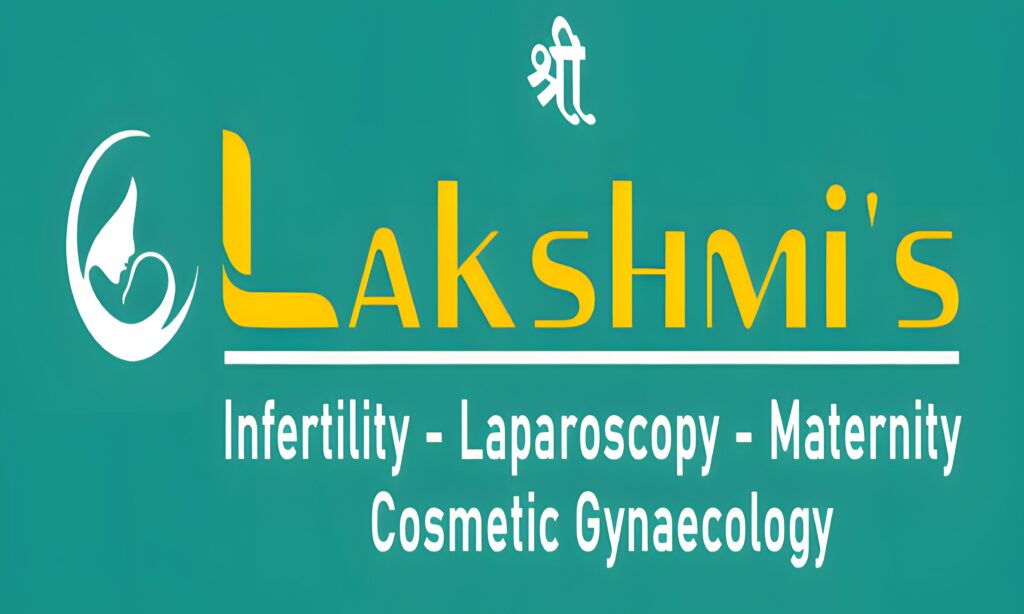Blogs
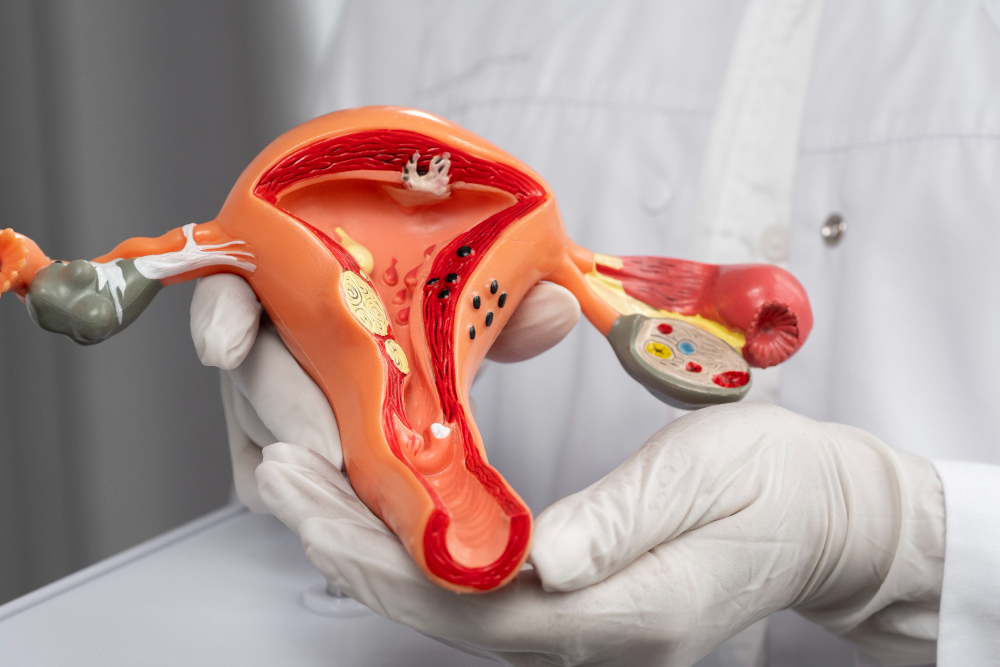
What Are Uterine Fibroids? Understanding the Causes, Symptoms, and Types
What Are Uterine Fibroids? Uterine fibroids are non-cancerous growths that form in or on the uterus. Many women develop fibroids during their childbearing years. Although
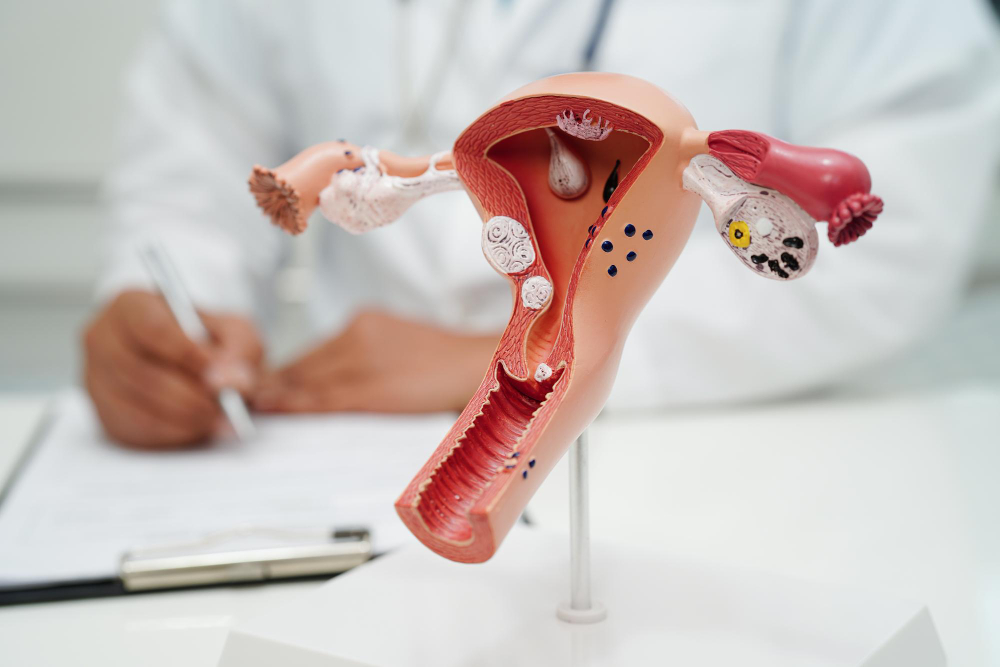
What Are Uterine Fibroids? Understanding the Symptoms, Causes, and Risk Factors
What Are Uterine Fibroids? Uterine fibroids are non-cancerous growths that form in or on the uterus. Many women develop uterine fibroids during their reproductive years.
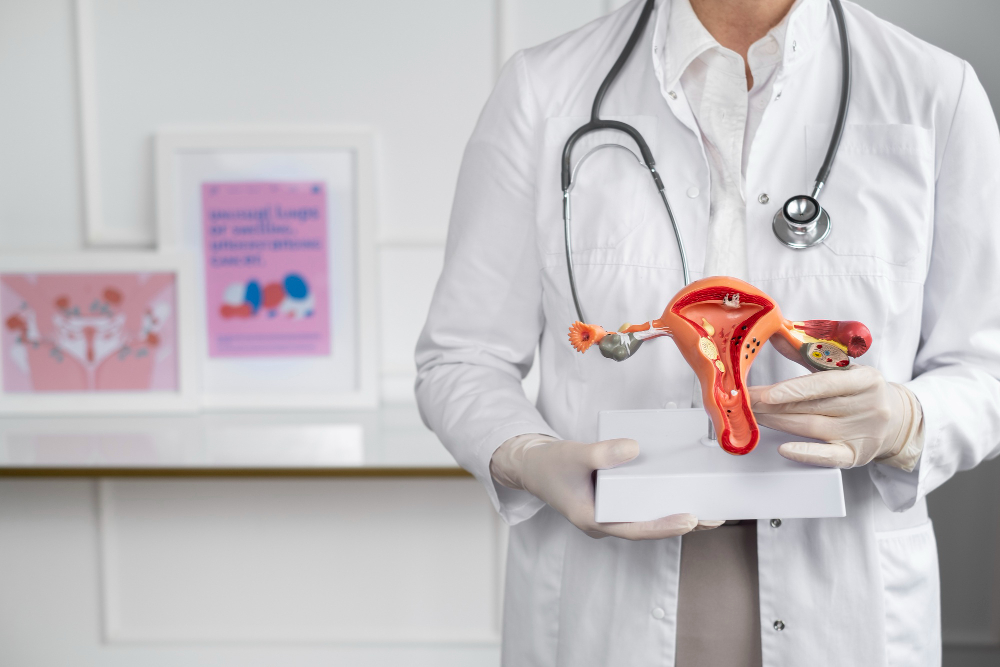
Understanding PCOS: Symptoms, Causes, Diagnosis, and Treatment
What is PCOS? Polycystic Ovary Syndrome, or PCOS, is a common health problem in women of childbearing age. It affects how the ovaries work. Because

Understanding PCOS: Symptoms, Causes, Diagnosis, and Treatment
What is PCOS? Polycystic Ovary Syndrome, or PCOS, is a common health condition that affects women of childbearing age. In fact, PCOS can cause problems
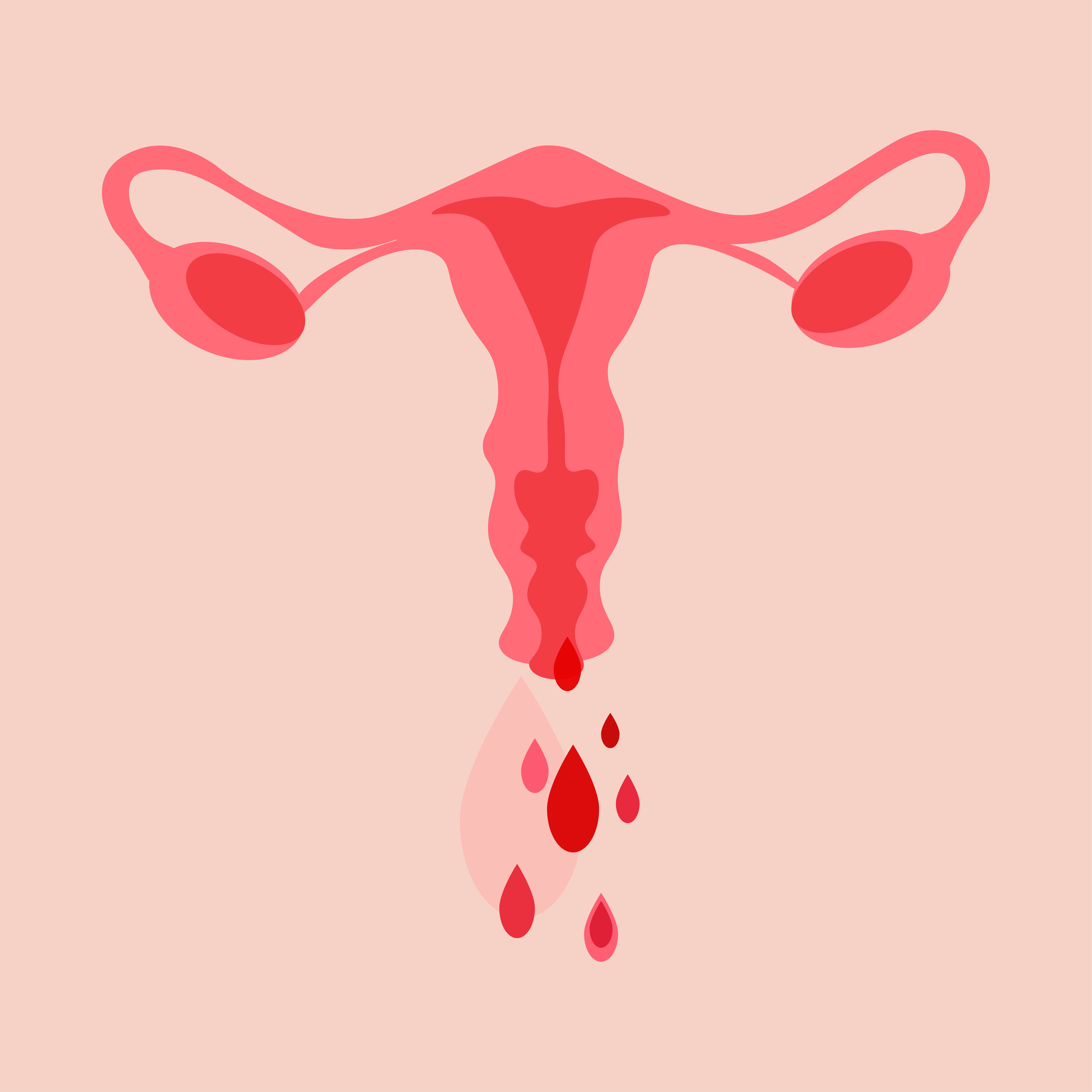
Understanding Menorrhagia: Symptoms, Causes, Diagnosis, and Treatment
What is Menorrhagia? Menorrhagia means heavy or long-lasting menstrual bleeding. Many women experience this at some point. However, if your periods are so heavy that
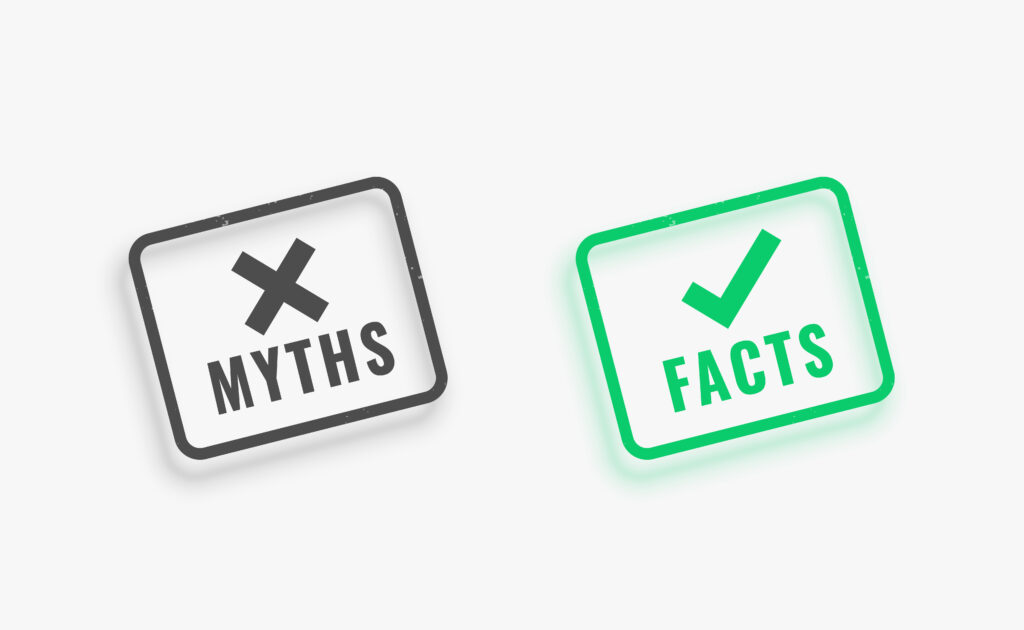
Common Myths and Facts About Fertility: Separating Truth from Misconceptions
Fertility is the ability to have children. Many people worry about their fertility, but there is a lot of confusion. In fact, common myths and

Understanding Hyperprolactinemia: Symptoms, Causes, Diagnosis, and Treatment
What Is Hyperprolactinemia? Hyperprolactinemia means you have high levels of prolactin in your blood. Prolactin is a hormone made by the pituitary gland, which sits
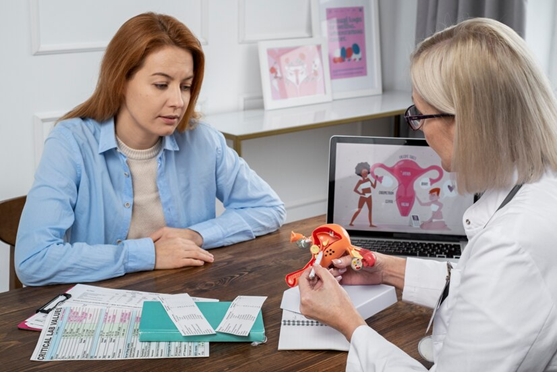
Endometriosis: What You Need To Know?
Uterus (womb) is lined with endometrial tissue, and the lining is called the endometrium. With each menstrual cycle, your body grows a new endometrium to
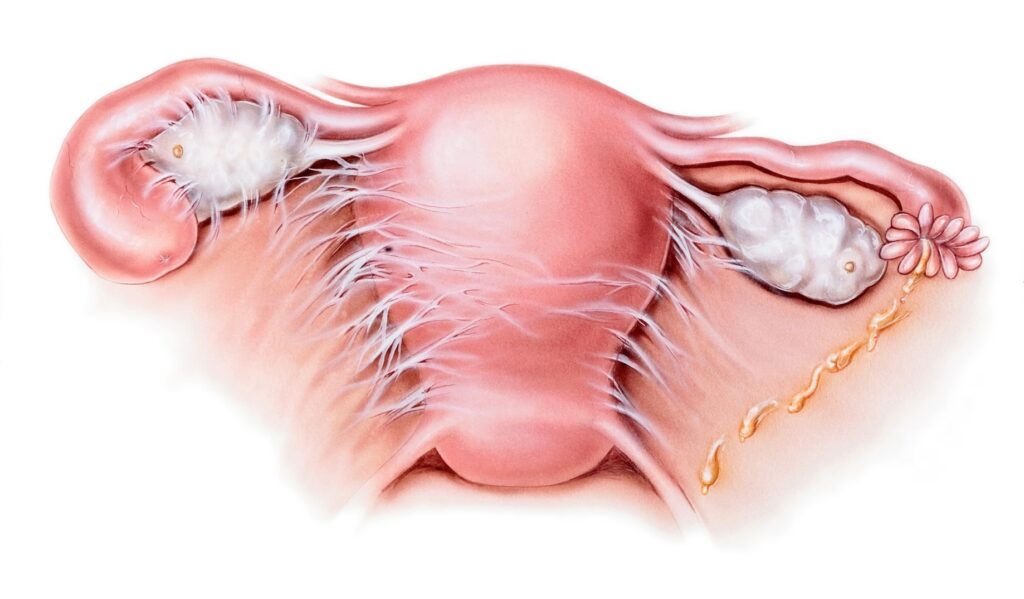
PELVIC INFLAMMATORY DISEASE (PID): The disease that Affects Female Reproductive Organs
Around 1 in 8 women with a history of PID experience difficulties getting pregnant Pelvic inflammatory disease (PID) is an infection or inflammation in
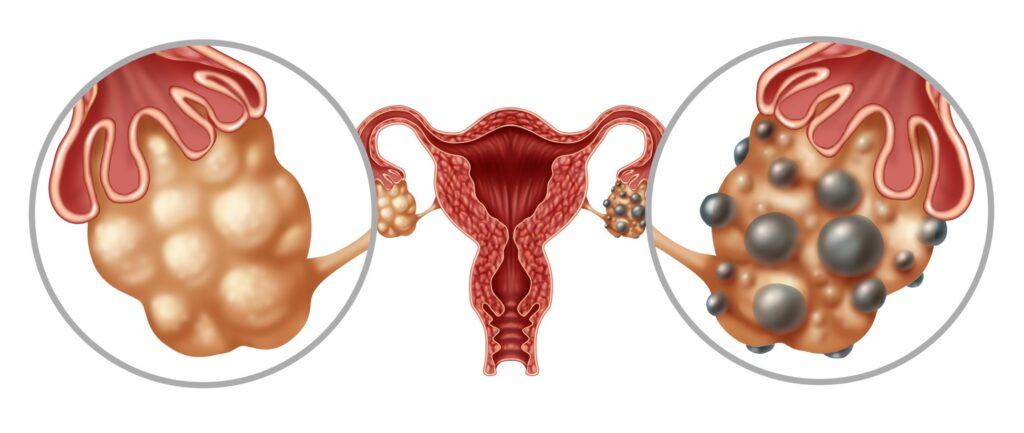
Can you get pregnant if you have polycystic ovarian syndrome (PCOS)?
Description: Women with polycystic ovarian syndrome can get pregnant and have a healthy baby by managing the symptoms of PCOS. Article: Polycystic ovarian syndrome (PCOS)

Understanding Jaundice in Pregnancy: Causes, Symptoms, and Prevention
Jaundice during pregnancy can be a worrying condition for expectant mothers and their families. It is marked by a yellowing of the skin and eyes,

Understanding Unwanted Pregnancy: Finding Strength
An unwanted pregnancy occurs when conception happens without the intention or desire to become pregnant, leading to a complex array of emotional and practical considerations.

Postpartum Hypertension: What to Know About High Blood Pressure in New Moms?
Postpartum hypertension is a rare condition indicated by high blood pressure (BP) and elevated levels of protein in the urine in women soon after childbirth.

Things to Know About Premenstrual Syndrome (PMS)
Premenstrual syndrome (PMS) is a group of mental, emotional, physical, and behavioural disturbances experienced by a woman before her menstrual cycle. All women experience at

Managing Premenstrual Syndrome
Premenstrual Syndrome (PMS) can be a challenging experience for many women. The physical and emotional symptoms that can arise in the days leading up to

Gestational Diabetes Diet: Foods to Eat and Avoid
Gestational diabetes is a type of diabetes that occurs during pregnancy. It is a condition where the body is unable to produce enough insulin to

Gestational Diabetes: What to Know?
It is a type of diabetes that occurs during pregnancy. It is caused by hormonal changes that interfere with the body’s ability to use insulin.
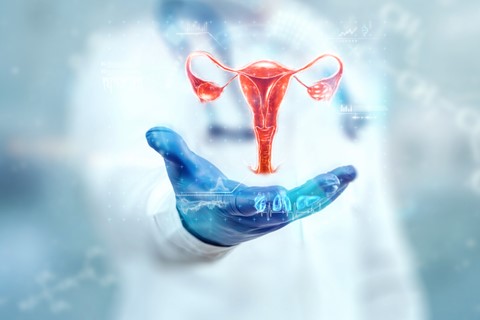
PELVIC INFLAMMATORY DISEASE (PID): The disease that Affects Female Reproductive Organs
Around 1 in 8 women with a history of PID experience difficulties getting pregnant. Pelvic inflammatory disease (PID) is an infection or inflammation in the
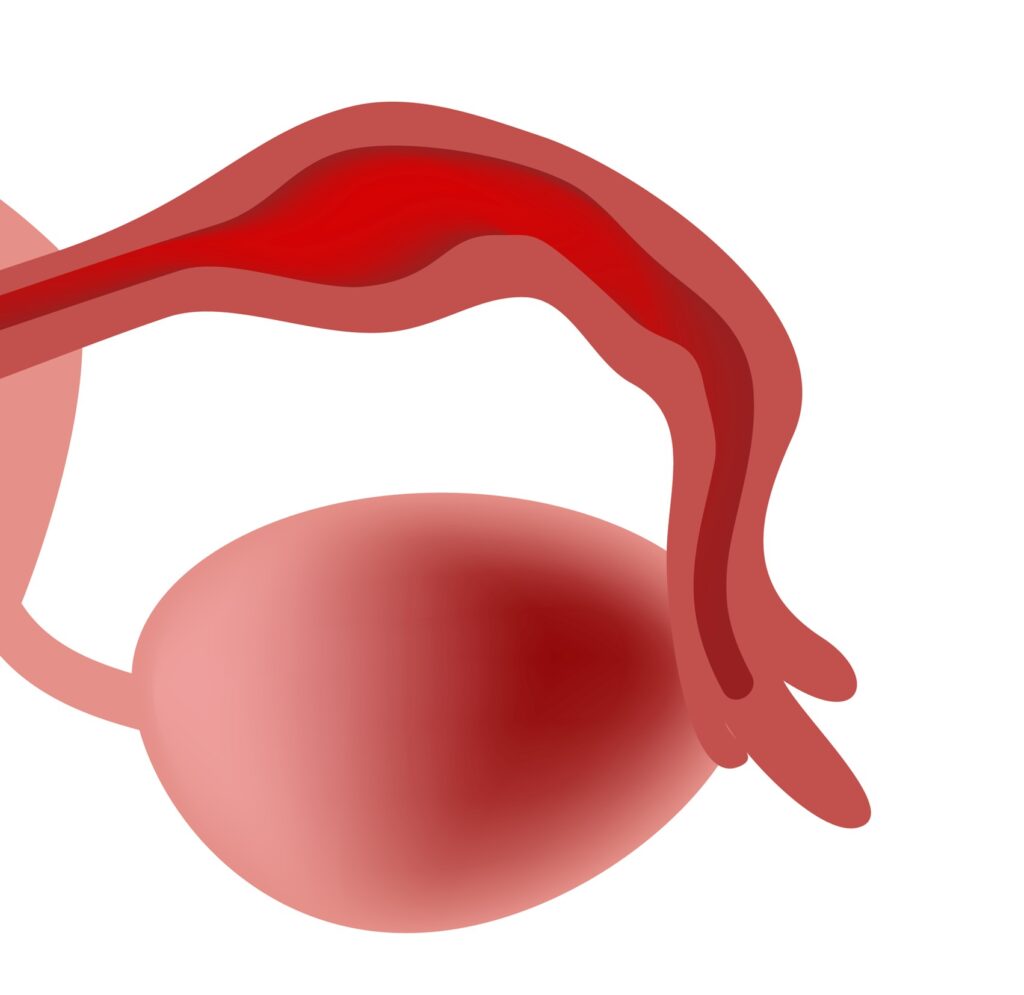
What is PID? Know More About It
PID, or pelvic inflammatory disease, is an infection of the female reproductive organs. It is caused by bacteria that can spread through sexual contact, but
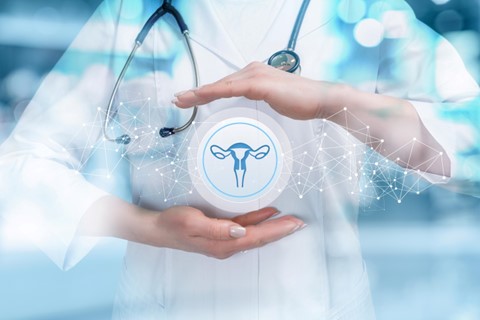
How does PID affect fertility and pregnancy, and what are the risks associated with it?
Pelvic inflammatory disease (PID) is a serious infection that affects the female reproductive system. If left untreated, PID can cause significant damage to the reproductive

How is PID treated, and what is the long-term outlook?
Pelvic inflammatory disease (PID) is a serious female reproductive system infection requiring prompt and effective treatment. Left untreated, PID can lead to long-term complications, such
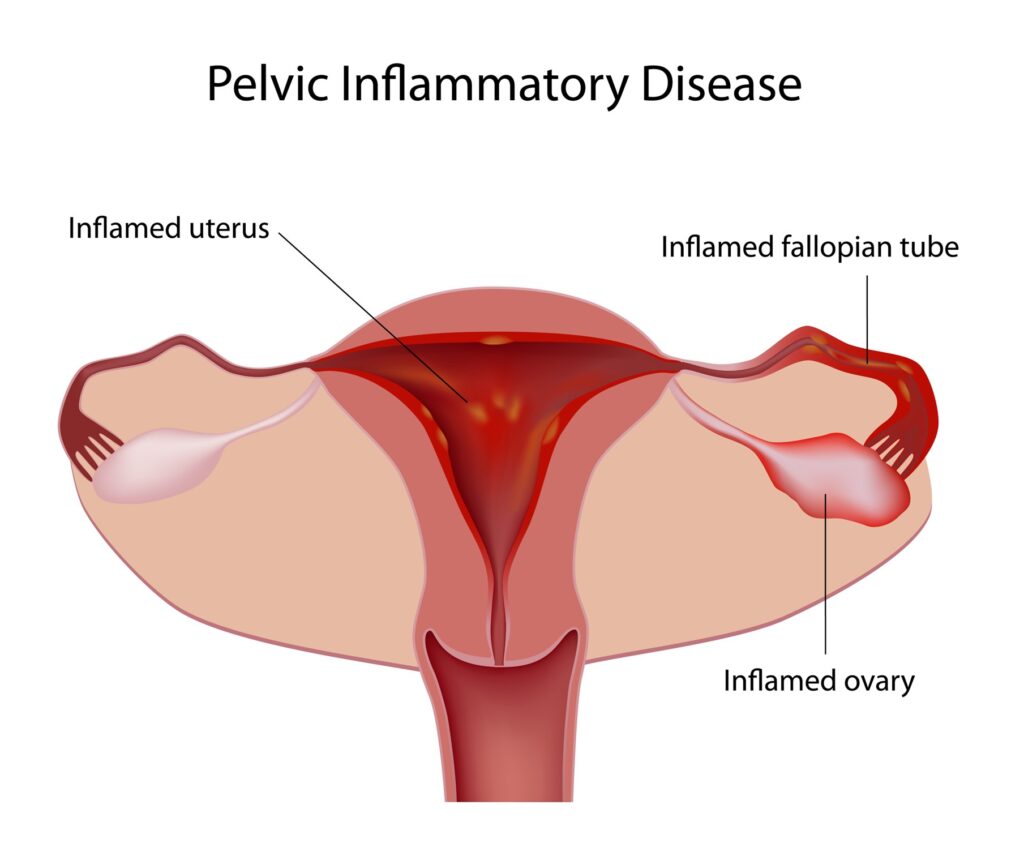
Top Myths and Facts About Pelvic Inflammatory Disease
Pelvic Inflammatory Disease (PID) is a condition that affects the female reproductive system and can lead to severe pain, fever, and other complications if left

Measures To Deal with Pelvic Inflammatory Disease
Pelvic Inflammatory Disease (PID) is a condition that affects the female reproductive system and can cause severe pain, fever, and in some cases, long-term complications
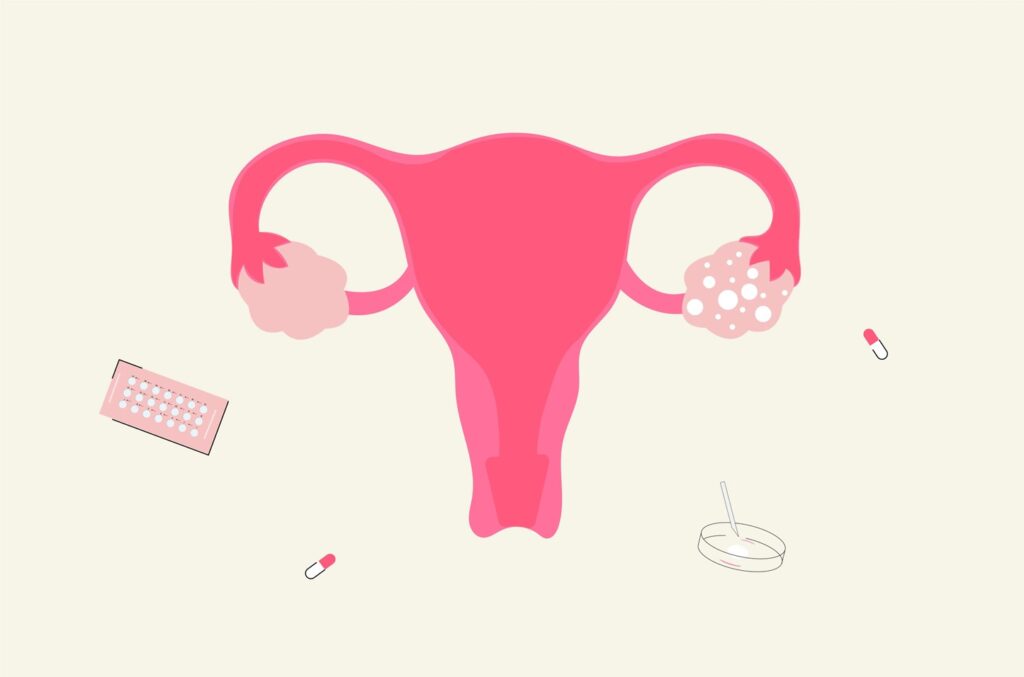
Understanding PCOS: Symptoms, Causes, and Treatment Options
Polycystic ovary syndrome (PCOS) is a common hormonal disorder affecting women of reproductive age. It is estimated that 1 in 10 women of childbearing age
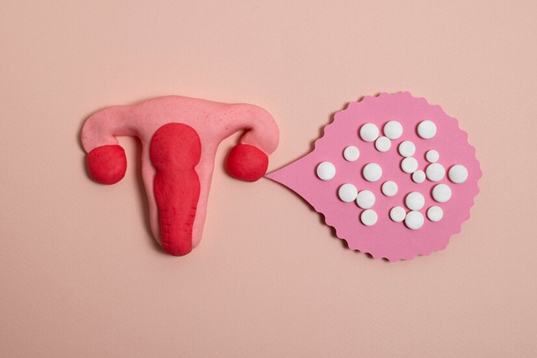
Hormonal Imbalances: Living with PCOS and Finding Relief
Hormonal imbalances can cause a wide range of health problems for women, including polycystic ovary syndrome (PCOS). PCOS affects up to 10% of women of
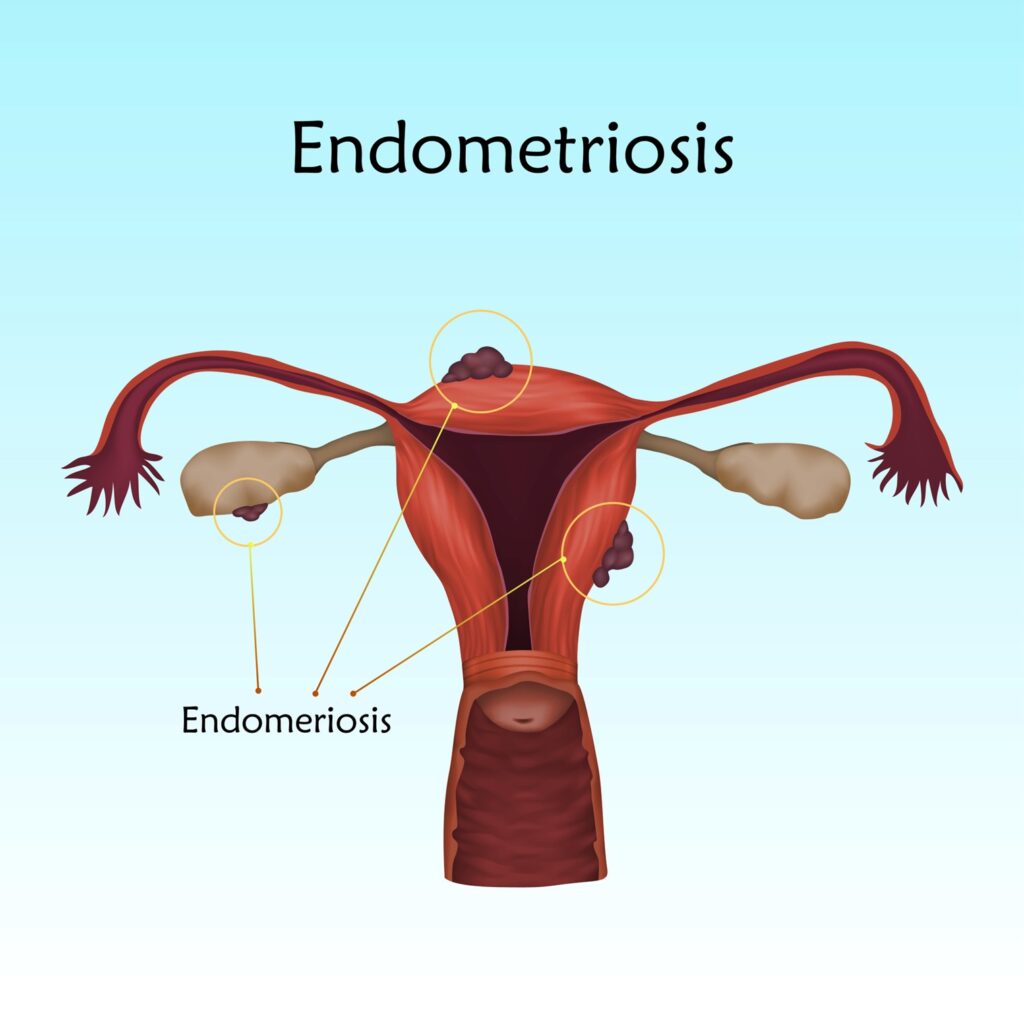
Endometriosis: What You Need to Know?
Uterus (womb) is lined with endometrial tissue, and the lining is called the endometrium. With each menstrual cycle, your body grows a new endometrium to

Understanding Endometriosis: A Silent Battle Fought by Many Women
Endometriosis is a chronic and often painful condition that affects millions of women worldwide. It occurs when tissue like the lining of the uterus, called

Things to Know About Premenstrual Syndrome (PMS)
The Invisible Struggle: All About Premenstrual Syndrome Premenstrual syndrome (PMS) is a group of mental, emotional, physical, and behavioural disturbances experienced by a woman before

Everything You Need to Know About Premenstrual Syndrome (PMS) FAQs
Premenstrual Syndrome (PMS) is a common condition that affects women of reproductive age. It is characterized by various physical and emotional symptoms that occur during
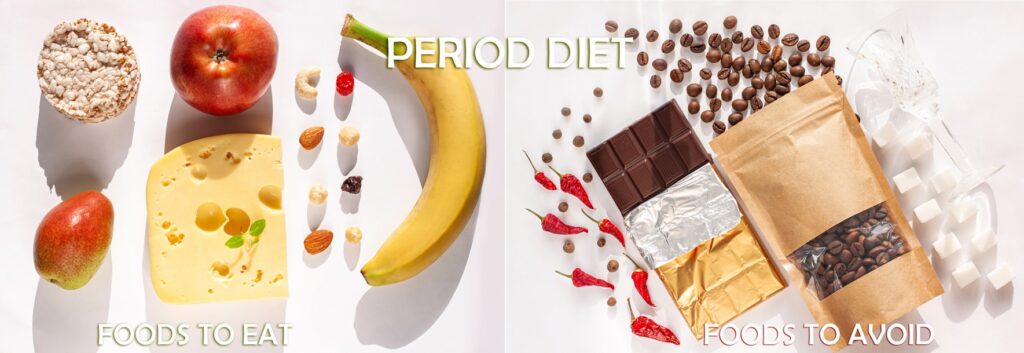
The Food-Mood Connection: Understanding the Link Between Your Diet and PMS
Premenstrual Syndrome (PMS) can be challenging to manage, with symptoms ranging from mood swings to bloating and fatigue. While lifestyle changes such as exercise and

PMS and Lifestyle Changes: How to Alleviate Symptoms Naturally
Premenstrual Syndrome (PMS) can be a challenging condition to manage. However, you can make several lifestyle changes to help alleviate symptoms and improve your overall

The Menopause Transition: What to Expect and How to Cope
Menopause is a natural biological process that marks the end of a woman’s reproductive years. It usually occurs between the ages of 45 and 55
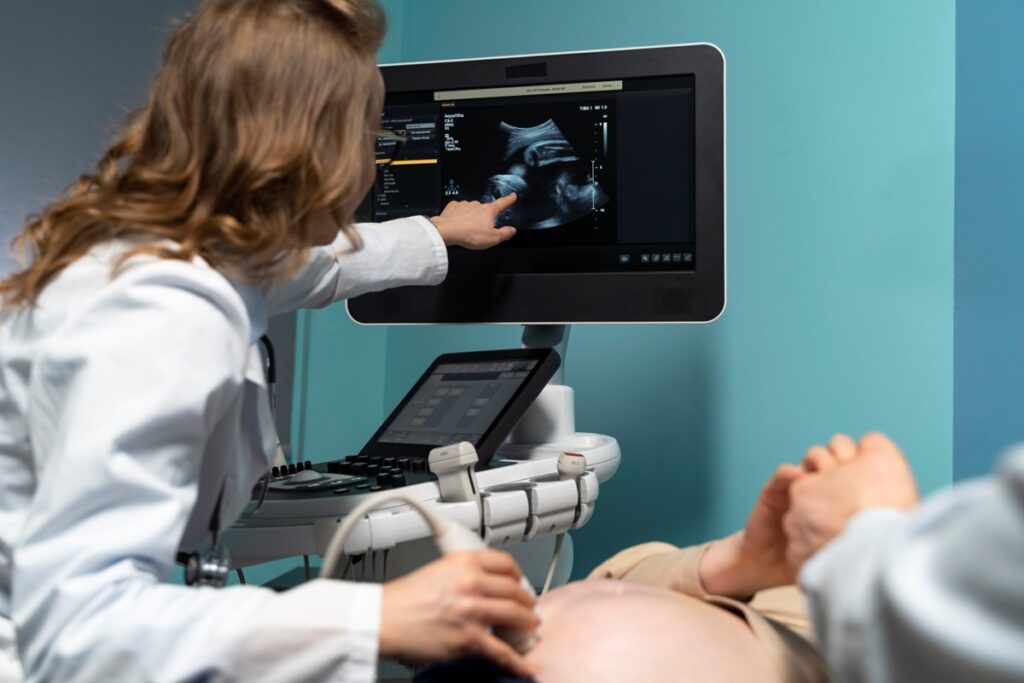
Ectopic Pregnancy: A Comprehensive Guide to Understanding and Managing the Condition
What is Ectopic Pregnancy? Ectopic pregnancy is a condition where the fertilized egg grows outside the uterus, usually in the fallopian tube. This abnormal pregnancy

All About High-risk Pregnancy
A pregnancy in which the mother or baby is at an increased risk for complications or health problems. Certain health conditions and age (over 35

Know More About Menopause
Menopause is the end of woman’s menstrual periods, and she can no longer bear children. It is a natural part of aging and usually occurs
